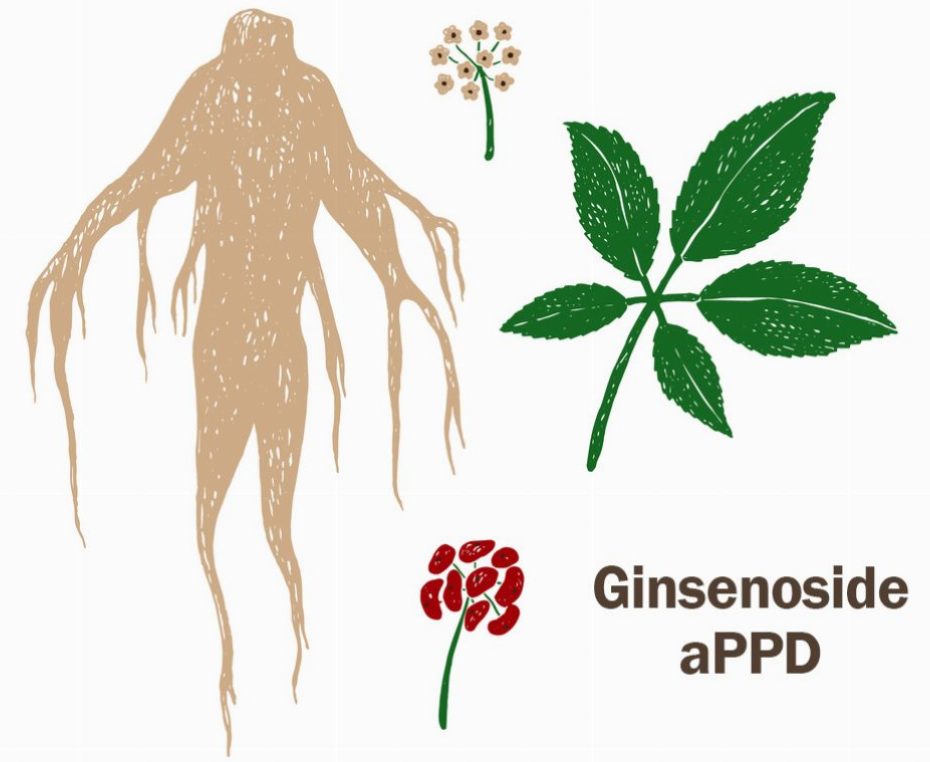Ginsenoside Rg3 together with gefitinib could help suppress lung tumor growth
 Lung cancer is the leading cause of cancer death among both men and women and it is expected by the American Cancer Society to have 228,150 new cases of lung cancer in the United States for 2019. Non-small cell lung cancer (NSCLC) accounts for about 85% of lung cancers.
Lung cancer is the leading cause of cancer death among both men and women and it is expected by the American Cancer Society to have 228,150 new cases of lung cancer in the United States for 2019. Non-small cell lung cancer (NSCLC) accounts for about 85% of lung cancers.
Gefitinib is a widely used targeted drug for non-small cell lung cancer and it can improve the progression-free survival and overall survival of patients with NSCLC. Despite the dominant advantages, gefitinib is coupled with some side effects like toxicity to normal cells and drug resistance.
The use of some herbal medicine to relieve the side effects of gefitinib has become a popular potential strategy in the cancer field. Ginseng is a well-known herbal remedy for over 2,000 years and its active ingredients, ginsenosides, are renowned for a variety of pharmacological activities, including antitumor activity, and scientists started studying the possibility of using ginsenosides together with gefitinib to better treat the tumor.
Ginsenoside Rg3 is one of the well-studied ginsenosides, and it is potential to be an adjuvant to help treat cancer. Previous studies found that ginsenoside Rg3 could enhance lung cancer sensitivity to chemotherapy.
A new study published in the Experimental and Therapeutic Medicine showed that ginsenoside Rg3 could help suppress lung small lung tumor growth together with gefitinib.
Researchers conducted a series of cell experiment to investigate whether ginsenoside Rg3 could enhance gefitinib efficiency in changing NSCLS cell proliferation, apoptosis and migration in A549 and H1299 NSCLC cell lines.
The research results showed that compared with gefitinib or ginsenoside Rg3 alone, a combination of gefitinib and ginsenoside Rg3 can achieve the best cytotoxic effect. Similarly, gefitinib, together with ginsenoside Rg3 worked best in inducing apoptosis, inhibiting tumor cell migration, enhancing the expression of migration and apoptosis-related proteins in NSCLC cancer cell lines.
The results might not be so surprising.
Many previous studies suggested that ginsenoside Rg3 might be effective to inhibit the tumor development in the complex tumor microenvironment. Also, ginsenoside Rg3 was found to reverse resistance to cisplatin in lung cancer.
Furthermore, a randomized controlled clinical trial involving 133 participants with non-small cell cancer found that ginsenoside Rg3, in combination with chemotherapy drugs improved the survival time of patients after cancer surgery. This study was published in the Chinese Journal of Integrative Medicine.
The new study reveals that ginsenoside Rg3 may help enhance the anticancer activity of gefitinib, but further investigations are needed for discovering the relevant mechanisms and confirming the efficacy of ginsenoside Rg3 to NSCLC treatment.


